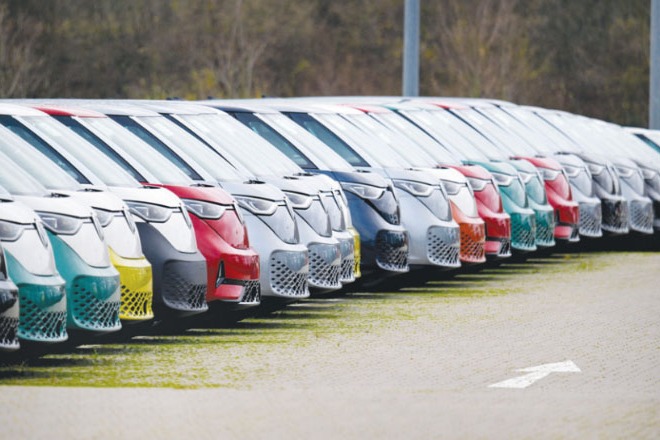Unbearable price of inaction


Destruction of ecosystems and biodiversity loss are a survival crisis for humanity
From Hebei province in China to Milan in Italy, Donnie Creek in Canada or Maui in Hawaii, the latest extreme weather events have left people in disbelief: "I have never ever seen anything like this in my whole life!" They refer to the winds, floods, and wildfires of exceptional strength that, week after week and in almost unpredictable ways, are battering all corners of the world. However, what was indeed predicted, and several decades ago, is that by continuing to pump huge volumes of greenhouse gases into the atmosphere from the burning of coal, oil and gas for energy, to altering the soil and clearing forests for agriculture and especially the farming of cows … all this would indeed happen. Those science-based predictions are sadly materializing today with huge costs to the economy and tragic loss of lives and livelihoods. And this is happening just by approaching 1.2 C of global warming, while we are currently heading toward a 3 C or more scenario before the end of the century.
Science is warning us also of another crisis, more silent but equally catastrophic. The loss of biodiversity. Species extinction is already a thousand times higher than the natural rate. Two-thirds of wildlife populations are in decline. Globally, we have cleared over one-third of the Earth's forests, 80 percent of the wetlands, half of the coral reefs and the loss is accelerating.
Major earth systems, entire ecosystems are rapidly heading toward tipping points meaning that their state will change and it may take centuries, even millennia to recover. Maybe never. Globally, coral reefs, tundra polar ice sheets and glacier systems are disappearing. Regionally, entire rainforest blocks such as the Amazon are heading toward becoming dry savannahs. From seasonal monsoons to the Atlantic Gulf Stream, systems that are crucial in regulating climate and rainfall patterns at local and global levels are being heavily destabilized. If this happens the planet and Earth systems will look and behave very differently from today, and most life on Earth, including our own species, will face huge challenges in adapting and surviving to extreme conditions and unpredictable weather patterns. In fact, we are impacting the very systems that, in the last eight thousand years or so, have given stability to the biosphere, enabling life, including our own species to thrive.
But in all this bad news there is a positive side. Today, alongside the awareness of our impact on the natural world, and perhaps more importantly, we are beginning to understand the consequences that it is not just on pandas, elephants or whales, but also on us. This equates to a historic shift in perception about nature loss. Extinction and deforestation are not only about our moral duty to coexist with the rest of life on Earth, but also about a security issue for humanity itself. It is not just something to be appalled or sad about but something that should seriously worry us. And it is not just about risks but also opportunities. Similarly to the carbon-neutral transition, embracing nature-positive practices in our lifestyles and key economic sectors can avoid huge costs. Nature is also our best ally in addressing both the climate and development challenges. Up to over 50 percent of the carbon dioxide emissions are neutralized by ecosystems on land and in the ocean: from forests to wetlands, seagrasses, and mangroves. More than half of the global GDP depends on healthy natural systems, from fish and pollinators to water regulation and access for agriculture and industries.
We are perhaps living in the inevitable paradox of a society at the start of a deep cultural and economic transition where the growing impact on the natural world is paralleled by an unprecedented rise in awareness and concern. Now the focus needs to be on how to turn all this into action for change.
During the last few years we have seen nature loss move from being perceived as an isolated moral and ecological issue to an economic, social and justice concern. Last December, the adoption of the Kunming-Montreal agreement under the Chinese Presidency of the COP15 of the United Nations Convention on Biological Diversity was dubbed as the Paris moment for nature. Almost 200 countries agreed to the mission of halting and reversing nature loss by 2030.In other words, a nature-positive future, one where we have more nature in the world, not less. Today we know we are in a biodiversity crisis and we understand its gravity. We know that it is linked to our unsustainable economic model. And we know the solutions too: protect more of the nature left on the planet, and more effectively; restore as much as we can of what has been lost; and sustainably manage the rest, including our productive landscapes, through sustainable practices in our production and consumption models.
Our civilization is at its most crucial fork in the road. One that can lead us to undermine the planet's life support systems or one that can rebalance the most important of all our relationships, the one with nature: our mother, our lifeline. For the first time in the history of human civilization, more and more of us are beginning to understand that we cannot continue to take nature for granted and dominate the planet, exploiting its resources wastefully and destructively without consequences. There are consequences already: loss of lives, livelihoods and economic assets, with things only getting worse unless we course-correct our economic development journey. The speed of change in which we embrace a truly ecologically sustainable future and evolve into an eco-civilization will determine success or failure in preserving life on Earth as we know it and in building a safe future for humanity.
Can we embrace this turning point before reaching climate and ecosystem tipping points? Can we learn how to develop and live within planetary boundaries? Such a transition is complex. The temptation to backtrack to business-as-usual is misleadingly ever present. There is and will be resistance to change, whether it is based on real concerns, ignorance or selfishness, to protect short-term economic interests and privileges of the few versus the collective good. Change is possible and, more importantly, it is necessary. We owe it to the amazing diversity of life that makes Earth a living planet. We owe it to our children and generations to come who, today, have no say but will pay the price of inaction. The future lies in our today's decisions. At a time when we finally understand that the only safe, just and future-proof society is a nature-positive society, one where we are able to live in harmony with nature and continue to benefit from her many invaluable and irreplaceable contributions to humanity.
The author is special envoy and former director general of World Wide Fund International.
The author contributed this article to China Watch, a think tank powered by China Daily.
The views do not necessarily reflect those of China Daily.

































